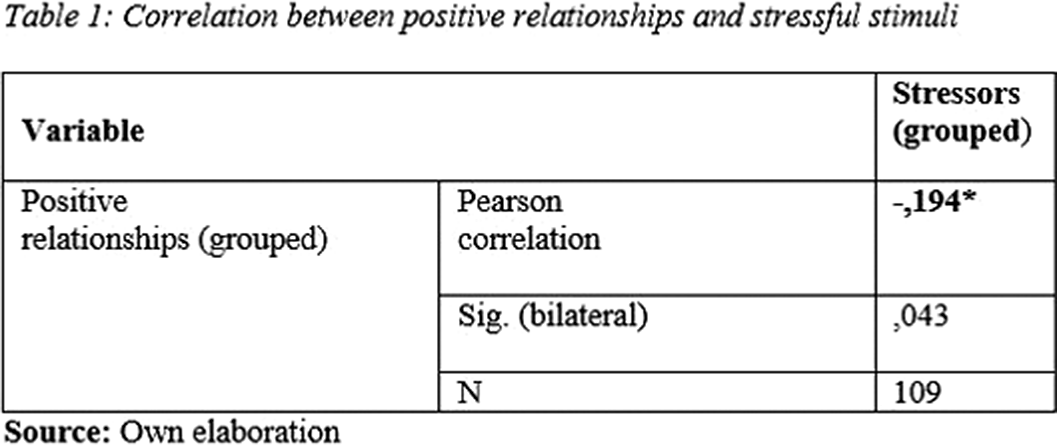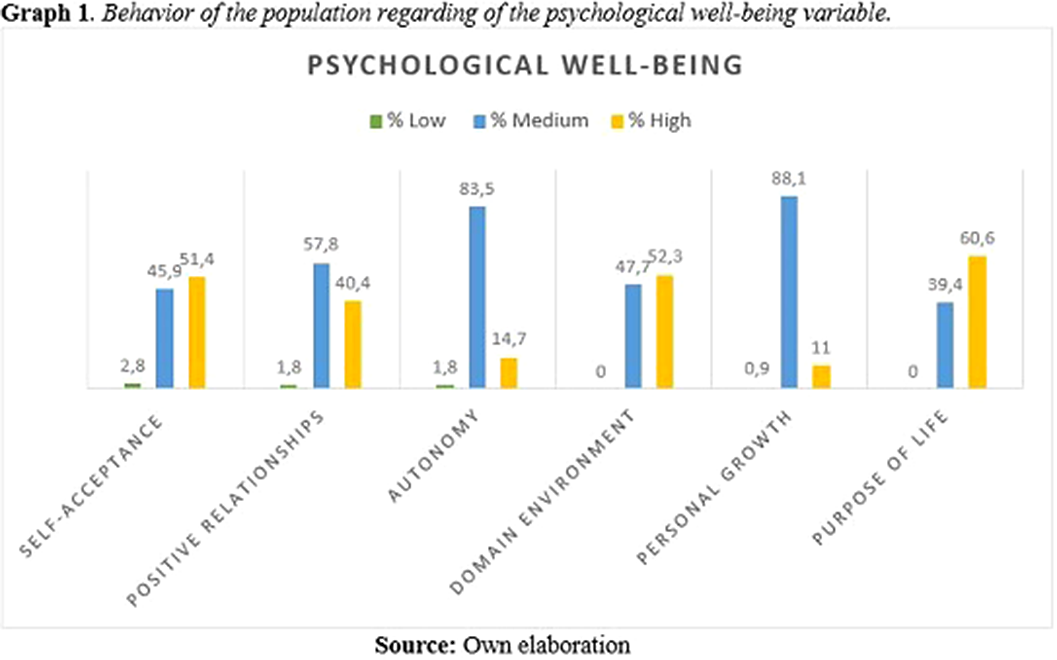No CrossRef data available.
Published online by Cambridge University Press: 19 July 2023
Berscheid (1999), taken from Lacunza & Contini (2016), indicated that social relations were the foundation of the human condition. From positive psychology, Park et al. (2013) point out good relationships as a factor that contributes to a good psychological life, since they provide emotional and instrumental support in times of stress and challenge, indicating, in turn, normal evolutionary development and the avoidance of psychopathological problems.
To establish the relationship between positive relationships and the presence of stressors in adolescents.
A cross-sectional, descriptive-correlational study was carried out in 109 (N= 109) adolescents. The SISCO Inventory was used to study academic stress as well as the Ryff Psychological Well-Being Scale.
A negative magnitude correlation was found between positive relationships and stressors. ( Table 1).
As a secondary result, 60.6% of the evaluated adolescents presented life purpos as the factor with the highest score in the psychological well-being variable. This points to authors such as Erikson (1988, p. 96), who define adolescence as a space characterized by feelings of creativity, productivity, new ideas, and a period of cognitive and social maturation, which leads to a definitive commitment to life itself. (Graph 1).
Image:

Image 2:

Positive relationships in adolescents decrease the presence of stimuli considered stressors.
None Declared
Comments
No Comments have been published for this article.